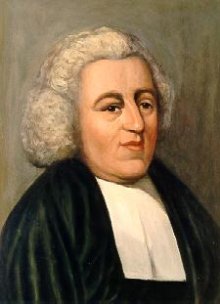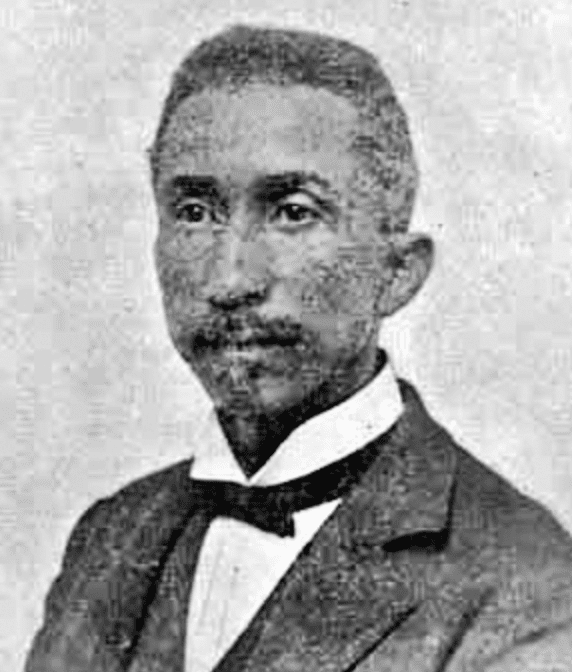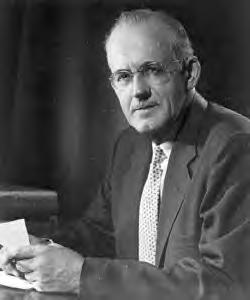The Bible establishes specific qualifications for pastors (see 1 Pet 5:3, 1 Tim 3:2–7, Titus 1:8, Eph 6:4). But above all, they are to “set the believers an example in speech, in conduct, in love, in faith, in purity” (1 Tim. 4:12)—a tall responsibility.
To honor the work pastors do for the sake of the gospel, we’re sharing about five pastors who lived out 1 Timothy 4:12 and loved God’s people well.
John Newton
I am a great sinner, but Christ is a great Savior. — John Newton

John Newton (a former slave ship master) is probably most known for his hymn “Amazing Grace,” packed with lyrics that powerfully illustrate God’s saving grace to sinners.
But what many don’t know is the reason why he wrote the song: as a teaching aid for his congregation at Olney in Buckinghamshire, UK. “He was using what was an innovative medium in the eighteenth century—hymn composition—to explain in an easily remembered form of verse the eternal truth of God’s love.”1
Tony Reinke gives us a glimpse of the man behind the hymn:
. . . Newton walked with a spiritual limp. John Newton was the chief of sinners, and if he could be saved by God’s unmerited favor, no person on planet Earth was too wicked or too far beyond the reach of God’s grace to be saved. If there is one point of self-understanding Newton lived with, it is that his salvation could never have originated within himself. Grace broke his life just as powerfully as an unexpected ocean storm broke his security. Out of his humble self-awareness, Newton wrote hymns as if he were composing words for himself; he preached sermons as a hungry sheep himself telling other sheep where to find food.
— Tony Reinke, Newton on the Christian Life
Charles Octavius Boothe
What a glorious work that building, that house of God, that temple, that church will be when finished! —Charles Octavius Boothe

Charles Octavius Boothe, born a slave in Alabama in 1845, spent his life working to “improve the spiritual, social, and intellectual well-being of Black people in a society that denied their humanity before God and in its constitution.”1
Though he established and pastored two churches, his driving passion was teaching the Black populace. He believed that education would diffuse many wrongly held beliefs by white people—such as that Black people would regress into “savagery.”2 That’s why much of his teaching focused not on the esteemed theologian but on “the average sharecropper”—those pastors, teachers, and leaders with little education or money who needed to be able to read their Bible and discern truthful interpretations from error.
This passion is evident in his book Plain Theology for Plain People, 3 first published in 1890. In it he simply and beautifully lays out the basics of theology for common people.
In this quote from the book, Boothe explores how Christians should live and relate to one another—and what it means to edify the body:
This church, this house, this temple of God, is to be built up, and “every one of us” has received some gift to fit him for a helper in the building up. “Those who by action, instruction, exhortation, comfort, promote the Christian wisdom of others, and help them to live a correspondent life, are regarded as taking part in the erection of that building [that is, the church, or temple of God, in which the Holy Spirit dwells]; and hence are said to edify, to promote growth in Christian wisdom, affection, grace, virtue, holiness, blessedness.”
What a glorious work that building, that house of God, that temple, that church will be when finished! And what a blessed privilege it is that “every one of us,” as the apostle says, has some gift from Christ to fit him for helping on its completion! Let every one keep fixed in mind the thought, “I am called by the blessed Jesus to help in building up his glorious house,” and seek daily grace and help so that he may build wisely and rapidly!
—Charles Octavius Boothe, Plain Theology for Plain People
John Owen
He is no pastor who doth not feed his flock. —John Owen, “The Duty of a Pastor,” September 8, 1682

English pastor and theologian John Owen longed to see the glory of Christ take root in people’s lives, and he did so exhibiting 1 Timothy 5:17, laboring “in the word and doctrine.”
He believed pastors should preach the mysteries of the gospel and be skilled to rightly divide God’s Word.
But perhaps most importantly, he believed pastoring requires intimately knowing one’s flock:
He who hath not the state of his flock continually in his eye, and in his mind, in his work of preaching, fights uncertainly, as a man beating the air. If he doth not consider what is the state of his flock, with reference to temptations, in reference to their light or to their darkness, to their growth or to their decays, to their flourishing or to their withering, to the measure of their knowledge and attainments; he who doth not duly consider these things, never preaches aright unto them.
—John Owen2
A. W. Tozer

A man shall not be established by wickedness: but the root of the righteous shall not be moved. (Prov 12:3).
A. W. Tozer was an American pastor, writer, magazine editor, and spiritual mentor. He had no formal pastoral education, yet he pastored several churches over 44 years until his death. He challenged pastors to rise up and “Love Christ and the souls of men to the point of willingness to die for the glory of the One and the salvation of the other,” and this characterized his pastoral calling. He wrote:
Go back to your grass roots. Open your hearts and search the Scriptures. Bear your cross, follow your Lord and pay no heed to the passing religious vogue. The masses are always wrong. In every generation the number of the righteous is small. Be sure you are among them.
— A. W. Tozer3
Tozer’s works, like The Knowledge of the Holy and The Pursuit of God, continue to call people to a deeper knowledge of God.
The Apostle Paul
For God is my witness, how I long for you all with the affection of Christ Jesus. — The Apostle Paul

We’d be remiss if we did not include Paul in this list. The apostle Paul epitomized an unloving, prideful, self-focused leader focused more on legalism than the character of God. That is until he met Christ. After that transformational encounter on the road to Damascus, Paul turned from persecuting and killing Jews to passionately loving God and his people. He became “all things to all people”—meaning he oriented himself to the circumstances, culture, and context of those to whom he preached the gospel.
His mission centered on being like Christ in deed and action—and this was evidenced in his deep love for people in the churches throughout Asia: “I hold you in my heart, for you are all partakers with me of grace, both in my imprisonment and in the defense and confirmation of the gospel” (Phil 1:7).
Of Paul German New Testament scholar Günther Bornkamm writes:
It is perfectly astonishing to see how short a time [Paul] took in traversing the extensive fields where he worked, and how quickly he left scarcely founded churches and traveled farther, instead of taking time to care for them and train them … The great goal of carrying the gospel to the ends of the earth kept him always on the move and gave him no rest.
—Günther Bornkamm
Thankfully, many other pastors throughout the millennia have led and loved well—and countless pastors serve faithfully in the small things today.
If you’re a pastor, thank you for your dedication and obedience to God’s call.
Related articles
- 10 Books on Being a Pastor in the Real World
- Pastoral Leader, Get in Front of Your Sheep. Jesus Did.
- 3 Pastoral Ministry Books to Answer Your Burning Questions
- Pastoral Burnout: Why Every Pastor Needs a Pastor
Related resources
- The Care of Souls: Book & Course Bundle (2 vols., 2 courses) – by Harold L. Senkbeil
- Know Your Church Report, a comprehensive questionnaire by Church Answers that can measure a church’s perceived health
- Funerals: For the Care of Souls – by Tim Perry
- Lexham Press Pastoral Leadership Bundle (12 vols.)
- Walter R. Strickland II, “Introduction to Plain Theology for Plain People,” in Plain Theology for Plain People (Bellingham, WA: Lexham Press, 2017), viii.
- Boothe, Plain People, 2017
- Charles Octavius Boothe, Plain Theology for Plain People (Bellingham, WA: Lexham Press, 2017), 81.







